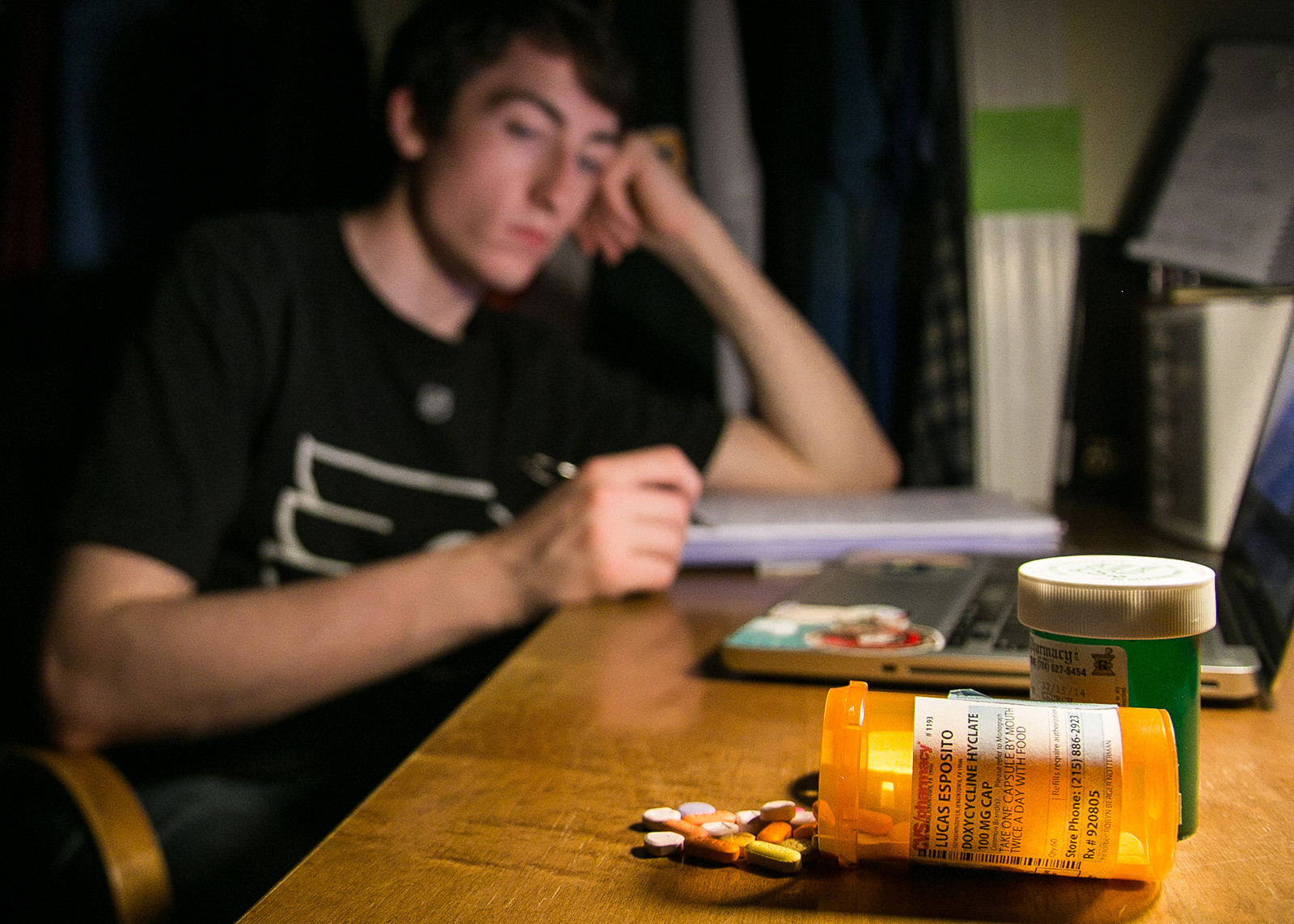
A new Ohio State University study found that about 10 percent of undergraduate students surveyed reported misusing prescription pain medications, while over 18 percent admitted to misusing prescription stimulants.
The College Prescription Drug Study is a multi-institutional survey of college communities, conducted and administrated by both OSU’s Center for the Study of Student Life and its Higher Education Center for Alcohol and Drug Misuse Prevention and Recovery.
“The CPDS examines the non-medical use of prescription drugs, including the reasons for and consequences of use, access to prescription drugs and perceptions of use among students,” the study said. “The purpose of the CPDS is to gain a more thorough understanding of the non-medical use of prescription drugs among college students.”
Anne McDaniel, an author of the study and associate director of research and data management at OSU’s student life center, said the study has been conducted two times prior to survey the issue of drug abuse.
“It was something that faculty, staff and students had been noticing may be an issue,” she said. “We have done it twice on campus and as we were presenting the findings at some conferences, other campuses approached us and said [they] would love to have this information on [their] campus as well so then we made a decision to go ahead and work with some other campuses and survey students there.”
McDaniel said the number of students using stimulants was the most apparent from the study’s results.
“Far more students are misusing stimulants than pain medications or sedatives, so that suggests that this is something we should be thinking about more and educating students on,” she said. “The reason why students say they are using stimulants is to study or improve grades. So it seems that they are using them as what are called ‘study drugs’ or ‘study aids.’”
At OSU, McDaniel said, the university has created educational programming around the misuse of prescription drugs such as educating and talking to students about the repercussions of misusing substances and how students can keep their own prescribed medications safe.
“We let students know it’s not as common as [they] think and not all students are doing this,” she said. “This is something other campuses do with alcohol and drugs as well, but we’ve been doing it around the misuse of prescription drugs.”
At Boston University, Student Health Services’ Wellness and Prevention Services offers alcohol and drug programs for students such as confidential counseling sessions, support groups and education classes.
“We are committed to reducing the negative consequences associated with alcohol and other drug use while helping to create a safe and healthy environment for all of our students,” the Wellness website reads. “We take a comprehensive approach to addressing the dangers of substance misuse both on and off campus.”
Officials at Wellness were not available for comment.
Several BU students said although using prescription drugs for non-medical purposes is a serious issue, they don’t find misuse to be a problem on campus.
“I know people that use [drugs] outside of prescriptions. I don’t know if I would call it a problem,” said Soum Das, a junior in the College of Arts and Sciences. “I think that the fact that people need to use extra things to help them do well in school is the issue and that is the core of it. If people knew how to study better and didn’t need the extra help it wouldn’t be that big of a deal.”
Das said he thinks ultimately BU can’t do much about the misuse of prescription drugs because students can get the drugs themselves and it is much more discrete than other drugs.
“I don’t know how BU would tackle that issue, but I guess they should try to, but I think there are other issues they should be worrying about, but they should do it the right way,” he said. “If they could [stop prescription drug misuse] they should, but I don’t think that they have to do that in such a pressing way, I don’t think that it is a pressing issue.”
Bria Adams, a junior in the Sargent College of Health and Rehabilitation Sciences, said she does not know anyone that misuses prescription drugs.
“Sometimes people overuse things, certain things that give you a certain effect, but it isn’t really an issue,” she said. “[BU] could create awareness for it and they could let the students know that they know that it is happening when it does happen, even if it is on a small scale. But for the most part I think we are pretty good in that aspect.”
Megan Brown, a freshman in the College of Communication, said she has never had exposure with others around her misusing prescription drugs.
“To me [misuse at BU] seems average [compared to other schools], but that is also probably because I haven’t had any exposure to it at all, but that doesn’t mean that it isn’t happening, it is just that I haven’t seen it,” she said. “If it is a problem then I think it needs to be fixed, because I don’t think that it is a good thing to have on campus.”
Sydney Foy contributed reporting.



















































































































